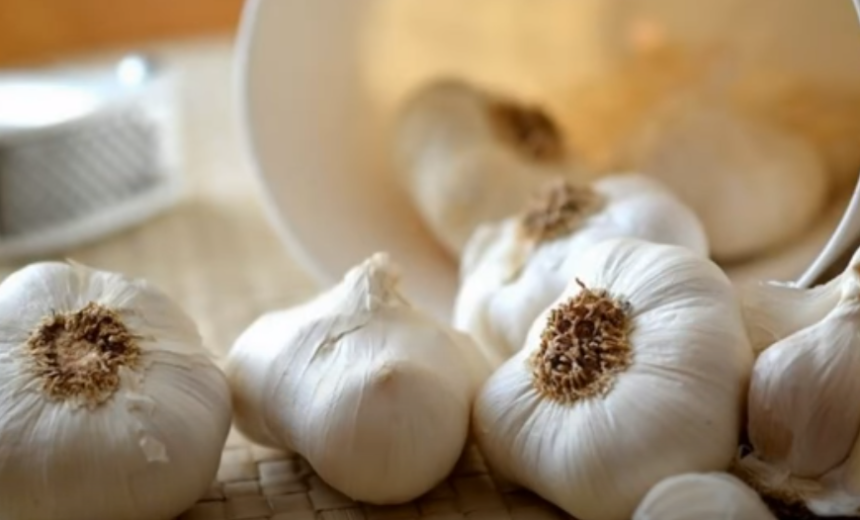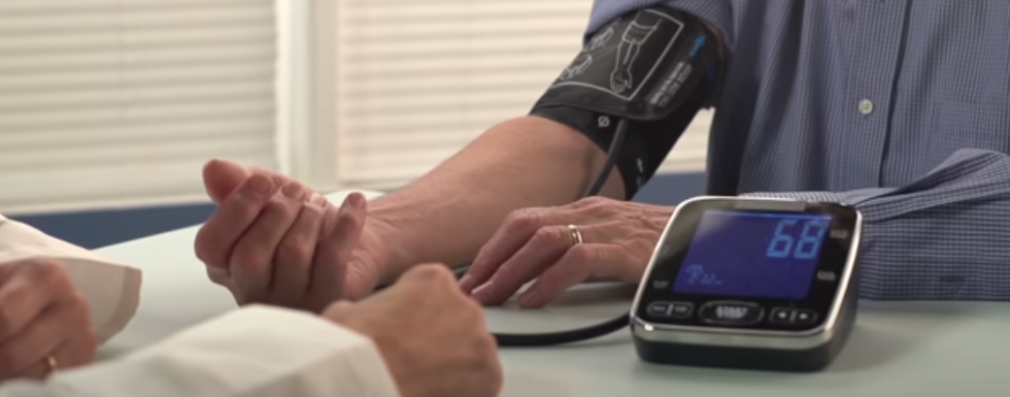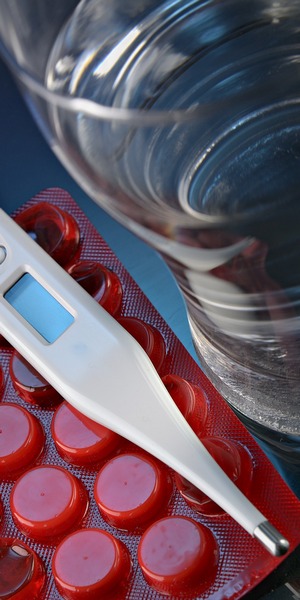The Power of Garlic: Its Potential Benefits in Managing Hypertension

Hypertension, commonly known as high blood pressure, affects millions of people worldwide. It is a significant risk factor for cardiovascular disease, including heart attacks and strokes.
Although lifestyle changes, such as a balanced diet and regular exercise, play a crucial role in treating hypertension, some natural remedies, such as garlic, are attracting attention because of their potential benefits.
Garlic has been used in traditional medicine for centuries because of its various therapeutic properties. In recent years, researchers have been exploring the potential of this vegetable to control blood pressure levels. This article addresses the question: How many cloves of garlic should be consumed daily to effectively control hypertension and promote overall cardiovascular well-being?
Garlic: Nutritional Profile
Garlic is known not only for its vibrant flavor and aroma but also for its impressive nutritional profile. This versatile bulbous plant contains a number of essential nutrients and bioactive compounds that contribute to its health. Below is an overview of the main nutrients found in it:
- Calories: Garlic is relatively low in calories – about 42 calories per 100 grams;
- Carbohydrates: It is a good source of carbohydrates – about 9 grams per 100 grams. These carbohydrates consist mainly of dietary fiber and small amounts of sugars;
- Protein: Although garlic is not a significant source of protein, it contains about 1.7 grams per 100 grams. However, the protein content of the vegetable is considered incomplete, that is, it lacks some essential amino acids;
- Fat: Garlic is low in fat, less than 1 gram per 100 grams. It contains a small amount of saturated fat and most of the fat is healthy monounsaturated and polyunsaturated fat;
- Vitamins: The vegetable contains several essential vitamins including vitamin C, vitamin B6, and vitamin B1 (thiamine). Vitamin C acts as an antioxidant and supports immune function, while vitamin B6 and thiamine play an important role in energy metabolism;
- Minerals: Garlic is a rich source of various minerals. It contains significant amounts of manganese, calcium, phosphorus, potassium, and iron. These minerals are vital to maintaining healthy bones, and the nervous system, regulating blood pressure and oxygen transport;
- Bioactive compounds: It is famous for its bioactive compounds, especially sulfur-containing compounds such as allicin. Allicin is responsible for many of garlic’s health benefits, including antimicrobial, antioxidant, and potentially blood pressure-lowering effects. Other important bioactive compounds include diallyl disulfide, ajoene, and S-allyl cysteine.
It is worth noting that the nutritional composition of garlic can vary somewhat depending on the variety, growing conditions, and cooking methods. Although it is a nutritious addition to a balanced diet, it is typically consumed in small amounts, so its contribution to total nutrient intake may be modest. However, its bioactive compounds, even in small amounts, are thought to have powerful health benefits.
Adding garlic to food can add flavor while providing potential health benefits. Be sure to consult with a healthcare professional or nutritionist to get personalized dietary recommendations and make sure they meet your specific health needs.
How Does Garlic Reduce Blood Pressure?
Garlic has been studied for its ability to lower blood pressure, and although its exact mechanisms of action are not fully understood, several factors contribute to lowering blood pressure. Here are some ways in which the vegetable can help lower blood pressure:
- Vasodilator effect: Garlic compounds, including allicin and other sulfur-containing compounds, have been shown to help relax blood vessels, a process known as vasodilation. By dilating blood vessels, it can help to reduce peripheral resistance by facilitating blood flow and lowering blood pressure;
- Nitric oxide (NO) production: Garlic has been found to increase nitric oxide (NO) production in the body. Nitric oxide is a signaling molecule that helps to relax and dilate blood vessels, resulting in improved blood flow and potentially lowering blood pressure;
- Antioxidant properties: It contains antioxidants that help protect blood vessels from oxidative damage. Oxidative stress can lead to inflammation and damage to the inner lining of blood vessels, contributing to high blood pressure. The antioxidants in the vegetable can help counteract this oxidative stress and keep blood vessels healthy;
- Angiotensin-converting enzyme (ACE) inhibition: ACE inhibitors are a class of drugs commonly used to treat hypertension. Some studies suggest that garlic may have ACE-inhibiting properties similar to these drugs. By inhibiting ACE, it may help prevent blood vessel constriction and lower blood pressure;
- Anti-inflammatory effects: Chronic inflammation is thought to play a role in the development and progression of hypertension. Bioactive compounds in garlic have demonstrated anti-inflammatory effects that may help reduce inflammation and potentially help lower blood pressure.
It is important to note that although garlic promises to lower blood pressure, its effects may vary from person to person. The strength of the blood pressure-lowering effect may depend on factors such as a person’s overall health, the specific compounds used, and the dosage used.
It is also worth noting that while garlic can be a useful addition to a comprehensive approach to treating hypertension, it should not be relied upon as the only method of treatment. Lifestyle changes, including a healthy diet, regular exercise, stress management, and prescription medications, should be the foundation of blood pressure management.
As with any supplement or diet, it is recommended that you consult with a healthcare professional before incorporating garlic into your routine, especially if you are currently taking medication or have a co-morbid condition. They can provide personalized advice and recommendations based on your specific needs and medical history.
What does the research say about garlic to treat high blood pressure?

Research into the potential use of the vegetable to treat high blood pressure, also known as hypertension, has yielded interesting results. Although the evidence is not definitive and further research is needed, several studies and reviews have examined the effects of garlic on blood pressure. Below is a review of some of the key research findings:
- Blood Pressure Reduction: Numerous studies have shown that taking garlic, especially in the form of aged extract or powder, can result in a moderate reduction in both systolic and diastolic blood pressure. This reduction was observed in both people with hypertension and people with normal blood pressure;
- Comparison with Placebo: In a meta-analysis of 11 randomized controlled trials involving people with hypertension, it was found that taking garlic significantly reduced systolic and diastolic blood pressure compared to placebo. However, the reduction has generally been small, and the clinical significance remains to be elucidated;
- Allicin and Blood Pressure: Allicin, a compound found in the vegetable, has been attributed to various beneficial properties. Some studies show that allicin can help lower blood pressure. However, it is worth noting that allicin is relatively unstable and can break down quickly during food processing or cooking. This may affect its bioavailability and potential therapeutic effect;
- Duration and Dosage: The duration and dosage of garlic intake may affect its effect on blood pressure. Studies have shown that longer supplementation, such as 8 to 12 weeks, may be more effective in lowering blood pressure than shorter courses. Also, higher doses of garlic extract or powder, usually equivalent to several grams of raw vegetable, are associated with greater blood pressure reductions;
- Individual Variability: It is important to understand that people may respond differently to garlic supplementation. Some people may experience greater reductions in blood pressure, while others may have minimal or no reductions at all. Factors such as genetic variations, general health, and lifestyle can contribute to this variability.
Although available research suggests the potential benefits of garlic for blood pressure management, it is critical to approach it as a complementary strategy, not as a replacement for prescribed medications or as a lifestyle modification. It should not be used as a stand-alone treatment for hypertension, and it is advisable to consult with a healthcare professional before starting to take supplements or significantly increasing your garlic intake, especially if you are taking medications or have underlying medical conditions.
It is also worth noting that garlic can interact with certain medications, including blood thinners, so you should inform your doctor about any garlic intake to ensure safe use.
How much garlic should you use to treat high blood pressure?
The optimal amount of the vegetable for treating high blood pressure is the subject of ongoing research, and individual response may vary. However, based on the available research, it can be concluded that eating 1-4 cloves per day is a reasonable range for people without allergies or sensitivities. It is important to note that raw or crushed cloves contain higher amounts of allicin, the active compound responsible for its potential therapeutic effects.
It is worth noting that you can incorporate the vegetable into your diet in different ways, such as adding it to dishes during cooking or consuming it raw by crushing or chopping it and leaving it for a few minutes to activate the beneficial compounds.
However, it is important to approach garlic as a complementary strategy, not as a stand-alone treatment for high blood pressure. Lifestyle changes, including a balanced diet, regular exercise, stress management, and prescribed medications, should be the foundation of blood pressure treatment.
If you plan to use it as a supplement or to increase your intake significantly, it is advisable to consult a healthcare professional, especially if you are taking medication or have comorbidities, to make sure it is safe and appropriate to use in your particular case.
What is the best form of garlic to treat high blood pressure?
When it comes to the best form of garlic to treat high blood pressure, there are several options to consider. Here are the most common forms used for this purpose:
- Raw Garlic: Raw cloves are considered the most powerful form for treating blood pressure due to their high content of allicin, the compound responsible for many of its health benefits. When garlic is crushed or ground, the enzyme that produces allicin is activated. However, it is important to note that raw vegetable has a strong taste and smell, which may be unappealing to some people;
- Aged Garlic Extract (AGE): It is a popular form that has undergone a unique aging process that helps stabilize the compounds and reduce strong odor and taste. Aged garlic extract comes in supplement form and is standardized to contain a certain amount of beneficial compounds. Some studies have shown that it can lower blood pressure;
- Garlic powder or granules are made by dehydrating and crushing cloves. Although they do not have the same potency as raw garlic, they still contain beneficial compounds, including allicin. Garlic powder or granules can be used in cooking and add garlic flavor to dishes without having to crush or pulverize fresh cloves.
It is important to note that the effectiveness of each form may vary depending on factors such as processing methods, storage conditions, and individual response. What works best for one person may not work for another. It is recommended that you choose a form of garlic that suits your taste preferences and is comfortable with your lifestyle.
It is also advisable to consult a healthcare professional before taking garlic supplements or significantly increasing your garlic intake, especially if you are taking medications or have a serious medical condition. They can advise on the most appropriate form and dosage for your specific needs.
Who is contraindicated to garlic?
Here are some groups of people who should be cautious or avoid garlic:
- Allergies or sensitivities: Some people may have allergies or sensitivities to garlic. Allergic reactions to garlic can range from mild symptoms such as skin rashes, itching, or gastrointestinal discomfort to more serious reactions;
- Circulatory disorders or taking blood-thinning medications: Garlic has been linked to potential antiplatelet effects and may have blood-thinning properties. If you have a bleeding disorder or are taking medications that affect blood clotting, it is important to consult with a healthcare professional before using garlic as it may increase the risk of bleeding or interact with these medications;
- Planned surgeries: Because of garlic’s potential blood-thinning effects, it should be avoided before planned surgeries or invasive procedures;
- Gastrointestinal disorders: Garlic can sometimes cause gastrointestinal symptoms such as heartburn, indigestion, or upset stomach;
- Pregnancy and Breastfeeding: Although small amounts of garlic used in cooking are generally considered safe during pregnancy and breastfeeding, it is recommended that a healthcare professional be consulted for individual advice.
If you experience any side effects or have concerns about using garlic, it is always best to consult a healthcare professional.
Conclusions
Garlic has emerged as a promising natural treatment for hypertension because of its potential blood pressure-lowering effects. Although research on the optimal daily intake of garlic cloves is still ongoing, consumption of 1-4 cloves per day seems to be a reasonable range for people without allergies or sensitivities. However, it is important to remember that garlic should not be considered a stand-alone treatment for hypertension.
To effectively treat high blood pressure, lifestyle changes, including a balanced diet, regular exercise, stress reduction, and taking medications as prescribed by your doctor, should be a priority.
As with any supplement or diet, it is advisable to consult with a healthcare professional before including garlic in your diet, especially if you are currently taking medication or have a serious medical condition. They can provide individualized advice and recommendations based on your specific needs and medical history.
If you are considering taking garlic supplements, consult with your doctor to make sure it fits with your overall treatment plan. By combining the benefits of garlic with a healthy lifestyle, you can take proactive steps to improve cardiovascular health and control hypertension.








